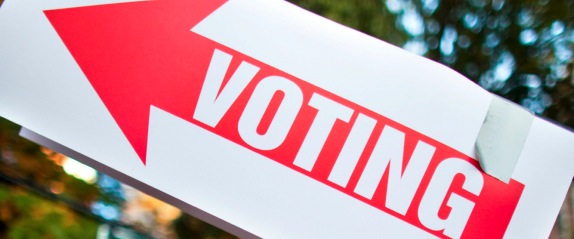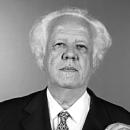
What if Latinos in Philly voted?
MÁS EN ESTA SECCIÓN
We're giving away our power by not showing up
During the 2012 presidential elections, 48 percent of all eligible Latino voters nationwide voted. Which sounds like a respectable number, right? Except it isn't. African-American turnout for that same election was just about 67 percent, and white turnout was 64 percent. And as politicians and polls always tell us, election turnout for non-presidential elections is much worse.
A few months ago, when AL DÍA reporters reached out to local politicians to estimate what percentage of Philadelphia Latinos turned out to vote (on average), the optimistic numbers hovered in the lower double digits; the perhaps-more-realistic ones didn't make it out of single digits.
This week we've published Commissioner Stephanie Singer's exhortation to young people to start voting to advance their own interests in the public square. She uses as an example the AARP, whose large and growing membership is one of the most reliable voting blocks. A good showing at the polls equals political clout, Singer says, and the older voter understands that in a way the younger voter doesn't yet.
When it comes to demographic groups and civic engagement, we act a lot like teenagers — whiny about what we don't have at hand but unwilling to get off our keesters to go get it.
Some of us are a bit better than our brothers and sisters about it. Pew research tells us that nationally, Cuban-Americans are the Latino cultural group that most reliably shows up at the polls (67 percent). Seventy-one percent of Latinos that cast a ballot are college graduates. And, as Singer notes in her column, the older we are the more likely we are to vote: turnout for Latinos 65 and older hovered around 60 percent in the 2012 elections while the 18 to 29 group didn't make it even to 40 percent turnout. This despite the fact that, according to Voto Latino, a full half of eligible Latino voters are under the age of 40.
The vast majority of Philadelphia's Latinos don't fit that profile. Forty-one percent of us live under the poverty line; two-thirds of us are Puerto Rican; only 22 percent of young Latinas who enroll in college complete degrees and if you are a young Latino man, college completion drops to 14 percent.
None of this should preclude us from voting. In fact, it should hone our intent to see that every Latino voice is heard when it comes to adddresing the systemic socio-economic and ethnic inequities that beset our city and communities.
On May 20, Philadelphia voters will have the opportunity to cast votes for the following candidates in contested primaries that will determine the final ballots in November:
Governor (Republican primary)
Robert Guzzardi, Tom Corbett
Governor (Democratic primary)
Tom Wolf, Robert M. McCord, Katie McGinty and Allyson Y. Schwartz
Lt. Governor (R)
Jim Cawley
Lt. Governor (D)
Mike Stack, Mark Critz, Mark Smith, Brandon P. Neuman and Brad Koplinski
Rep. in Congress (R) 13th District
Bev Plosa-Bowser, Carson Dee Adcock
Rep. in Congress (D) 13th District
Brendan F. Boyle,Val Arkoosh, Marjorie Margolies and Daylin Leach
State Senator (D) 2nd District
John Jenkins, Danny Savage, Thomas Sánchez and Christine M. Tartaglione
State Senator (D) 4th District
Brian D. Gralnick, Art Haywood and Leanna Washington
Rep. in The General Assembly (D)
180th Legislative District
Quetcy Lozada and Ángel L. Cruz
181st Legislative District
K. Williams-Medley, W. Curtis Thomas, Emily Rodriguez and Kenneth T. Walker Jr.
197th Legislative District
Leslie Acosta, Ben Ramos, Danilo R. Burgos, Jose P. Miranda and Edward Lloyd (as a write-in candidate)
In addition to a candidates forum we are presenting on May 8, AL DÍA will run its primary preview issue on May 18th. Look for it in honor boxes throughout the city, read it, and then ... make sure to cast your vote!
Click here for a full roster of primary candidates.






DEJE UN COMENTARIO:
¡Únete a la discusión! Deja un comentario.